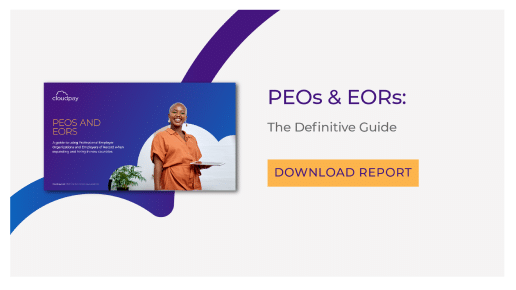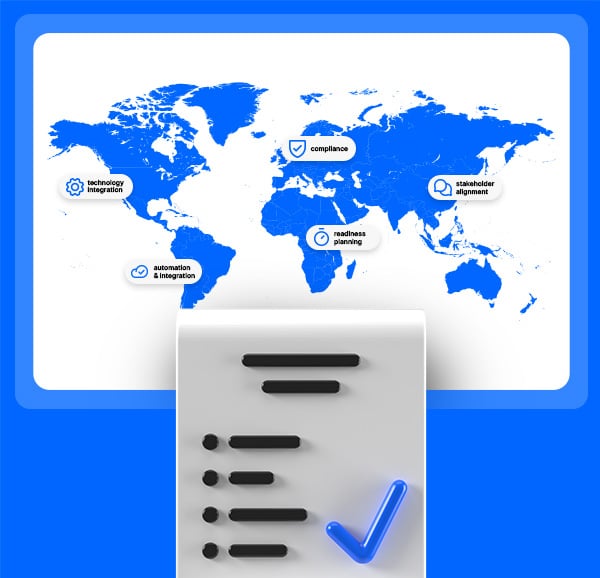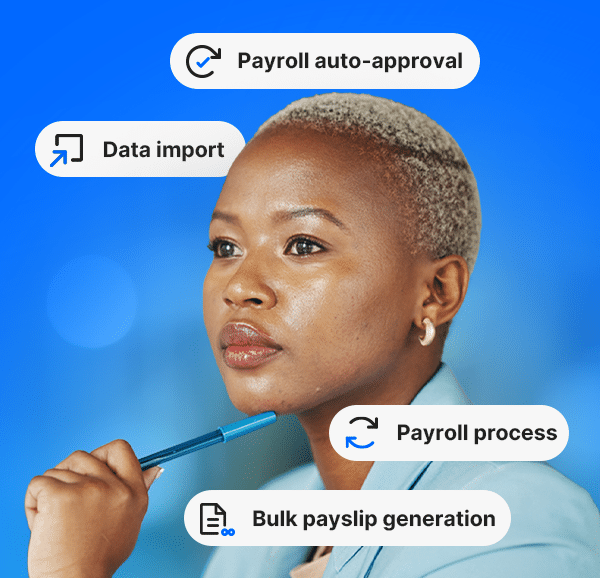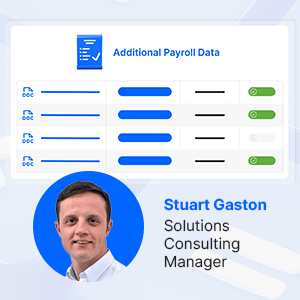With the importance of payroll within businesses growing all the time, many organizations are turning to outsourced payroll services – and it’s easy to see why. Payroll management can be complex, time-consuming, resource-intensive, and expensive. Plus, getting payroll in-house wrong can lead to severe implications ranging from financial penalties to negative employee experiences.
It wasn’t so long ago that outsourced payroll solutions were limited to non-sensitive functions that didn’t involve core business processes or data. But today, the ability to hand entire payroll operations over to trusted experts has made outsourcing a much more viable prospect, especially thanks to automation and established frameworks allowing essential checks and balances to be put in place.
If you’re not sure where to start, this blog is your complete guide to understanding outsourced payroll services and whether they’re right for your business.
How outsourced payroll services work
The outsourcing process starts with a key decision: how much of your payroll operation do you want to outsource? It may be that you want to hand everything over to a provider, or it may be that you want to ‘co-source’ and only delegate certain areas that you feel you need expert help with.
Outsourced payroll functions
The range of payroll functions that payroll outsourcing services can take on include (and are not necessarily limited to): setting up accounts and payment methods; tracking working time; wages calculations; payroll processing and delivery; data safeguarding, security and compliance; withholding and remittance of taxes and other deductions; and completing end-of-year payroll tax reporting.
With the level of proposed outsourcing determined according to your business needs, you can then assess different providers and find one that is a good fit for your requirements. Providers vary according to how many different territories and currencies they can cover, the technology and security they have in place, their pricing strategy, and much more. Once you’ve found the right provider with the right payroll software for you, terms of engagement and contracts can be agreed upon, stating what will be outsourced, how it will work, and how much it will cost.
To get the outsourced payroll services up and running, you share all the employee data and information that the partner needs, so that they can run payroll and withhold taxes and deductions according to your required schedule. They will go on to report regularly on payroll performance so that you can confirm that everything is running as it should and that you are getting value from the outsourcing agreement.
The advantages of outsourced payroll services
If you pick the right partner and outsource the right things, outsourcing can be incredibly beneficial to your organization. You can:
-
Relieve your admin burden: are your payroll team members and other administrative staff spending all or most of their time on payroll processing, data validation, and other similar work? If so, they can’t add value by applying their skills and experience elsewhere. Outsourcing this admin – especially the repetitive tasks that can be taken on by automation – can free up their resources and lighten the pressure of their workload.
-
Save money: outsourcing payroll can be extremely cost-effective. This can be through making payroll more efficient through the use of an expert partner, accessing payroll staff in countries with lower salary demands, or a combination of the two. A payroll service provider should also have the expertise to cut down on problems or errors which can be expensive to fix.
-
Access payroll expertise: the best payroll providers have years of experience in helping large and small businesses like yours, and work hard to stay on top of all the data security and legal requirements in every territory you operate in. Given that compliance can be especially difficult if you operate in many different countries (and therefore have to handle many different tax regimes), their expertise can be vital to keeping everything running as it should.
-
Generate insights: the combination of more available time for your payroll staff, and access to expertise and technology from your provider, means you can discover a new level of insights and trends from your payroll data. This information can not only help you improve payroll performance over time, but also help you learn more about your employees and how you can improve their overall working experiences.
-
Improve payroll performance: good payroll outsourcing companies can ensure that payroll always runs on time and accurately for every employer, thanks to the blend of their experience and the technology that they deploy. You should be able to depend on them to get things right first time, without any risk of mistakes, delays, or security issues with your sensitive data.
The disadvantages of outsourced payroll services
Of course, very few business changes come without any downsides at all, and there are a couple to watch out for when considering potential payroll partners.
The first is that you will lose some direct oversight of your processes when you’re hiring a payroll partner to take care of them for you. This isn’t necessarily a problem if you have a trustworthy, reliable partner that you can depend on to understand your payroll needs and get things right. However, if this isn’t the case, you may find yourself responsible for legal, financial and reputational consequences of errors that your partner has made.
The second possible pitfall is that outsourcing to a third party naturally increases the risk of a data breach or of a cyberattack, as access to that data is widened to allow the payroll provider to operate.
Given the sensitivity of the data involved in running payroll – employee bank details, social security numbers and so on – it can be a prime target for cybercriminals because the rewards on offer can be so substantial. Ensuring that your payroll partner has top-quality security measures in place is therefore one of the most vital factors to account for in your selection process.
Outsourced vs in-house payroll
If your payroll is currently conducted in-house and runs smoothly, you might think that it’s a case of “if ain’t broke, don’t fix it”. However, as the benefits above demonstrate, a good payroll partner has the ability to take your employee payroll and make it even better, whether through cost efficiency, payroll performance, or making informed decisions based on expertise. You’ll also be able to get personalized advice, training, and support so that you can tailor your payroll services to the specific needs and demands of your business and workforce.
Furthermore, if you’re transitioning towards a new payroll system, or pursuing integration with other platforms such as Human Capital Management (HCM) solutions, payroll partners can help you streamline the process so you can make the most of the change. They can ensure you avoid any common mistakes, and move toward the new setup with minimal business disruption, including compilation of existing data and any checks and validations that are required along the way.
FAQs about Outsourced Payroll Services
Here, we answer some of the most common questions organizations ask when evaluating whether to outsource some or all of their payroll duties:
-
Why should I outsource payroll instead of keeping it in-house? There are many benefits of outsourcing payroll. When you work with a third party that has years of expertise and experience, you can feel confident that your payroll will always be run on time, will be fully accurate, and won’t cause your business any problems. Additionally, a partner that can support you with up-to-date technologies and a global platform can help make your payroll a more valuable asset to your business as a whole.
-
How can I keep my payroll processes fully compliant at all times? By using a third-party provider that has the time, knowledge, and resources to monitor changes in regulations (for example, data protection laws or tax requirements) in every country where you operate. That way, every single employee will always get paid the right amount, with the right deductions withheld from them, wherever they work and however much they earn.
-
How do I know if outsourcing payroll is right for my organization? Every business is different, but outsourcing is a viable option for more organizations than ever before. In particular, you should consider it if you: don’t have the in-house resources and payroll professionals to run payroll effectively; have been sanctioned in the past for tax filings and remittances that were late and/or inaccurate; can’t keep up with changing regulations across multiple territories; or are struggling to keep data secure and properly documented.
In summary
The case for exploring outsourced payroll services is much more compelling than you might have thought, even if your in-house processes and team are already well-established. This is especially so at a time of great change in the world of work, with employee expectations rising and payroll driving competitive advantage in some organizations. Therefore, taking a new approach with the help of third-party expertise and technology could be a real game-changer for your enterprise. Find out more by discovering the CloudPay approach to global payroll today.



